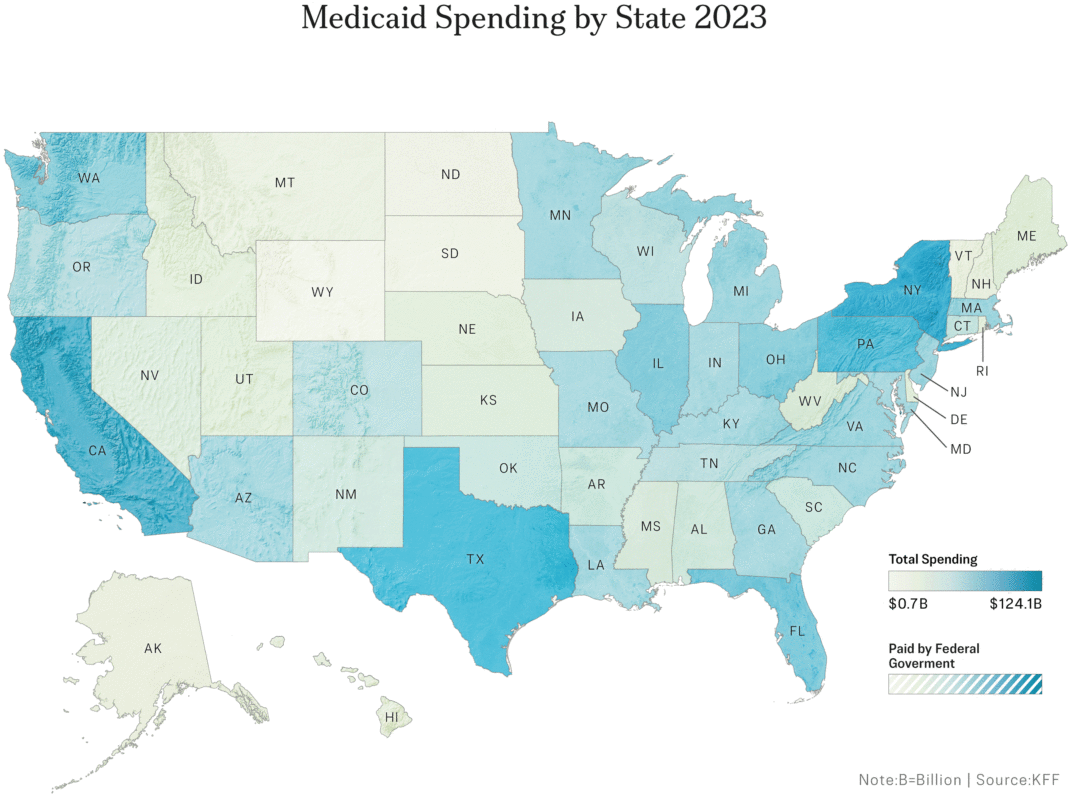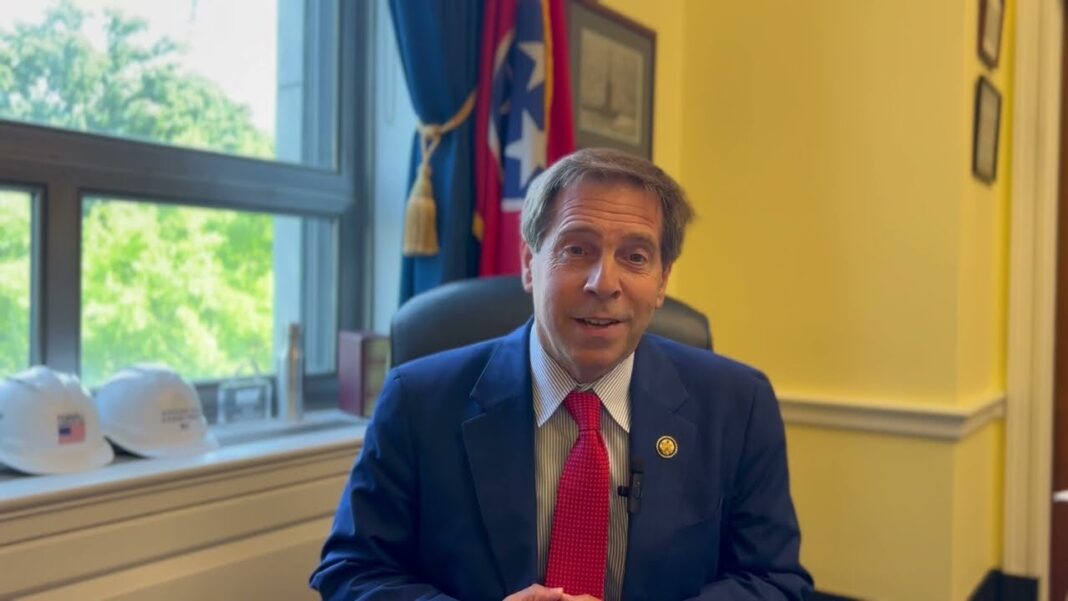As Republicans seek ways to cut federal spending, the possibility of a per capita limit on state Medicaid payments takes center stage.
Republican lawmakers are divided over a potential change in Medicaid funding that pits moderates against fiscal hawks and threatens to further delay the budget reconciliation process.
Two proposals at the center of contention would shift additional responsibility for funding the program—which provides health coverage for millions of low-income Americans—from the federal government to the states.
One proposal would reduce the Federal Medical Assistance Percentage (FMAP), which sets the Medicaid reimbursement states receive from the federal government.
The other proposal would, for the first time, cap the total reimbursement a state could receive from the federal government, basing the cap on the number of Medicaid enrollees in each state.
Both ideas would further the Republican goal of trimming $1.5 trillion from federal spending over 10 years.
Moderates have balked at both ideas, fearing the loss of coverage or benefits among constituents.
House Speaker Mike Johnson (R-La.) told reporters on May 6 that both ideas had likely been ruled out, “but stay tuned.”
Rep. Chip Roy (R-Texas), a longtime health care reform advocate and fiscal conservative, responded to Johnson by posting, “Well—I haven’t ruled it out,” on social media platform X.
Here’s what Medicaid spending looks like now and what it might look like if Congress adopts either the reimbursement rate reduction or the per capita cap.
Now: Limited Percentage, Unlimited Reimbursement
The federal government oversees Medicaid and reimburses states for a portion of their Medicaid costs.
Each state has discretion in setting its own income-based eligibility requirements, adding optional coverages, setting provider reimbursements, and adding enrollment fees and copays.
Basic Medicaid coverage is for low-income people who are children, disabled, parents of dependent children, or elderly.
The Affordable Care Act expanded Medicaid in 2014 to include non-elderly adults who would not qualify for Medicaid under traditional guidelines.
About 21 million people are currently covered under the expansion, according to enrollment data from the Centers for Medicare and Medicaid Services (CMS).
Under traditional Medicaid, the federal government reimburses each state based on the state’s per capita income level. That amount—the Federal Medical Assistance Percentage, or FMAP—ranges from 50 percent in 10 states to 76.9 percent in Mississippi.
However, states receive a 90 percent reimbursement for the expenses of those covered under the Medicaid expansion, regardless of the state’s income.








